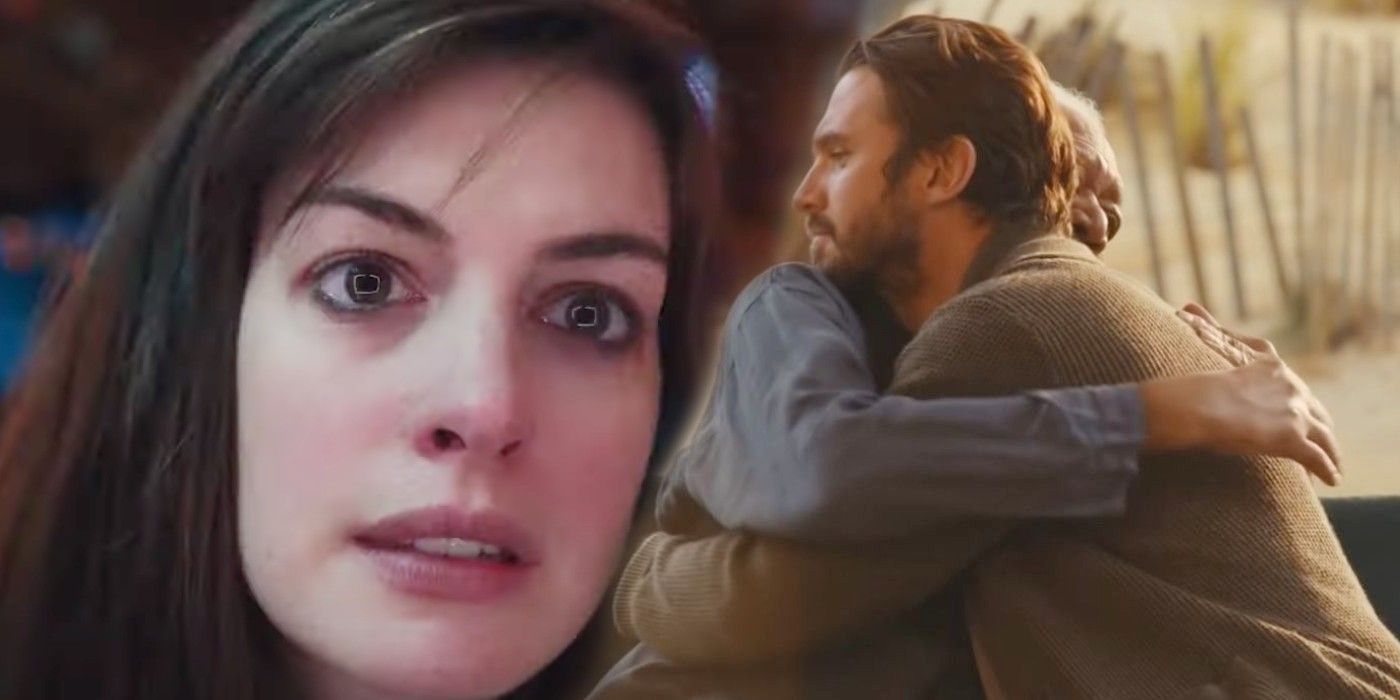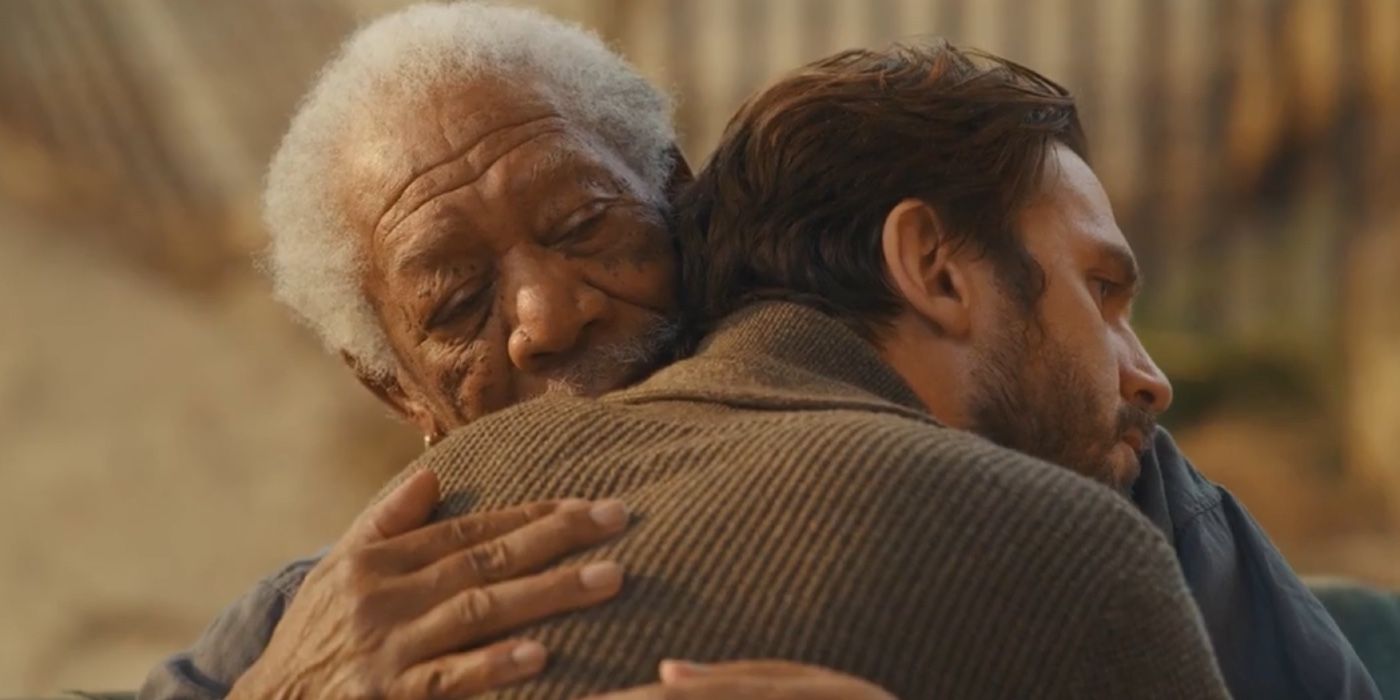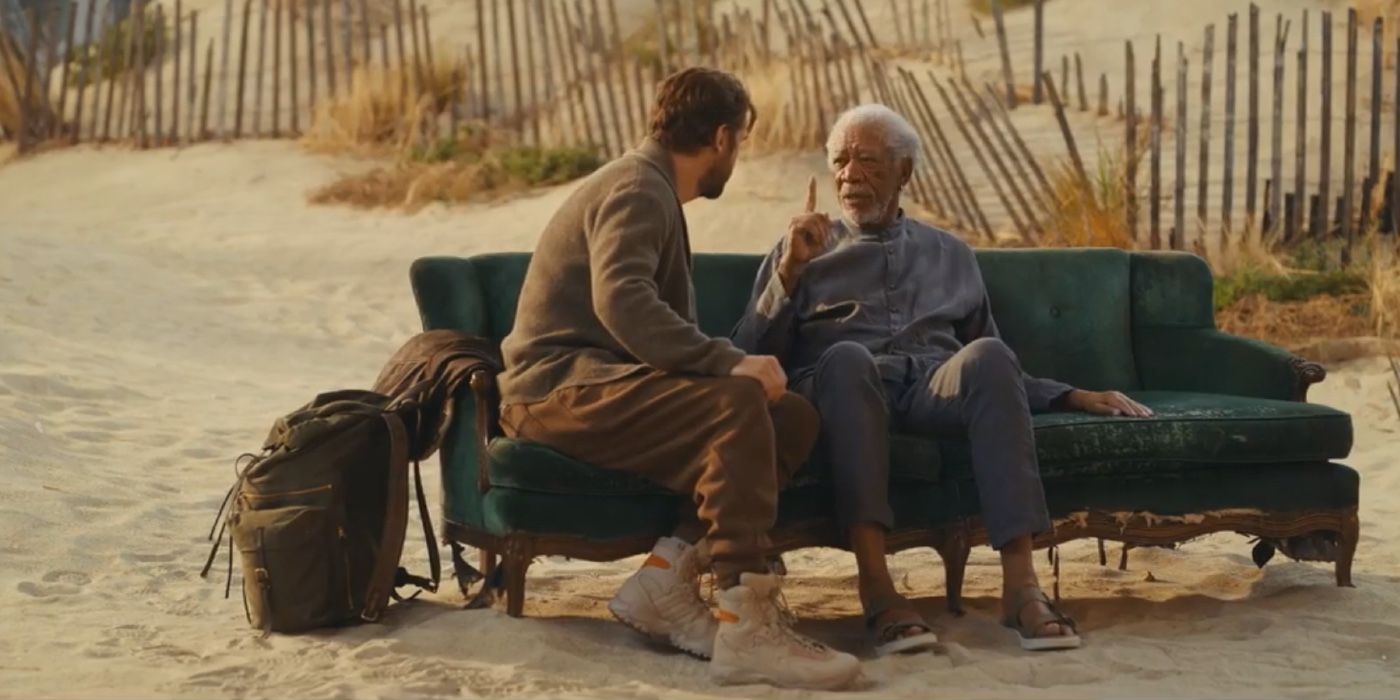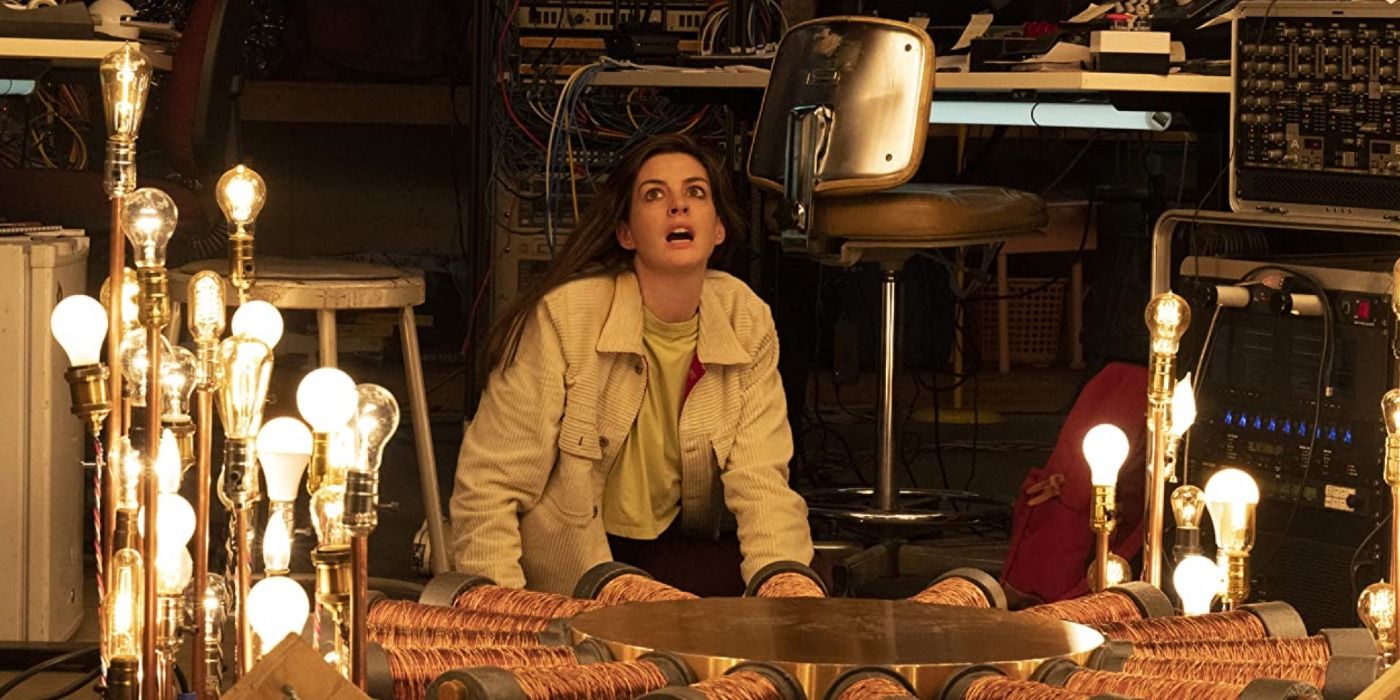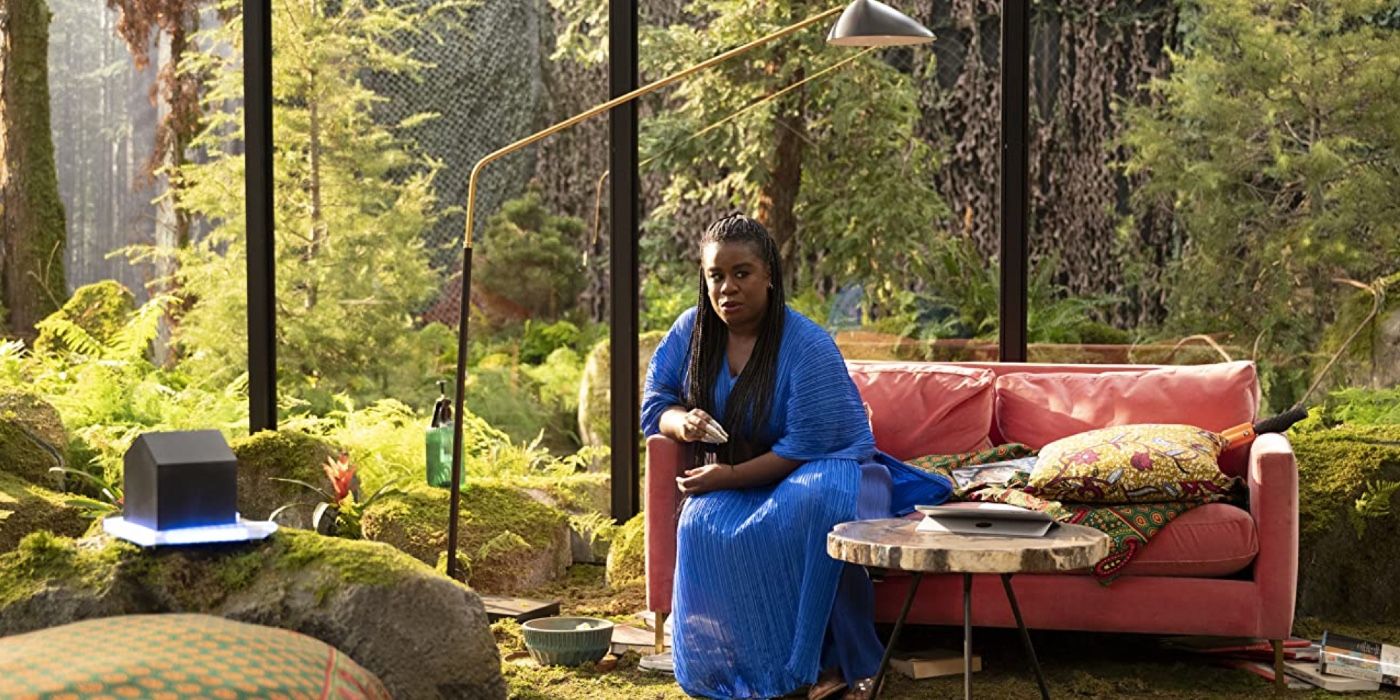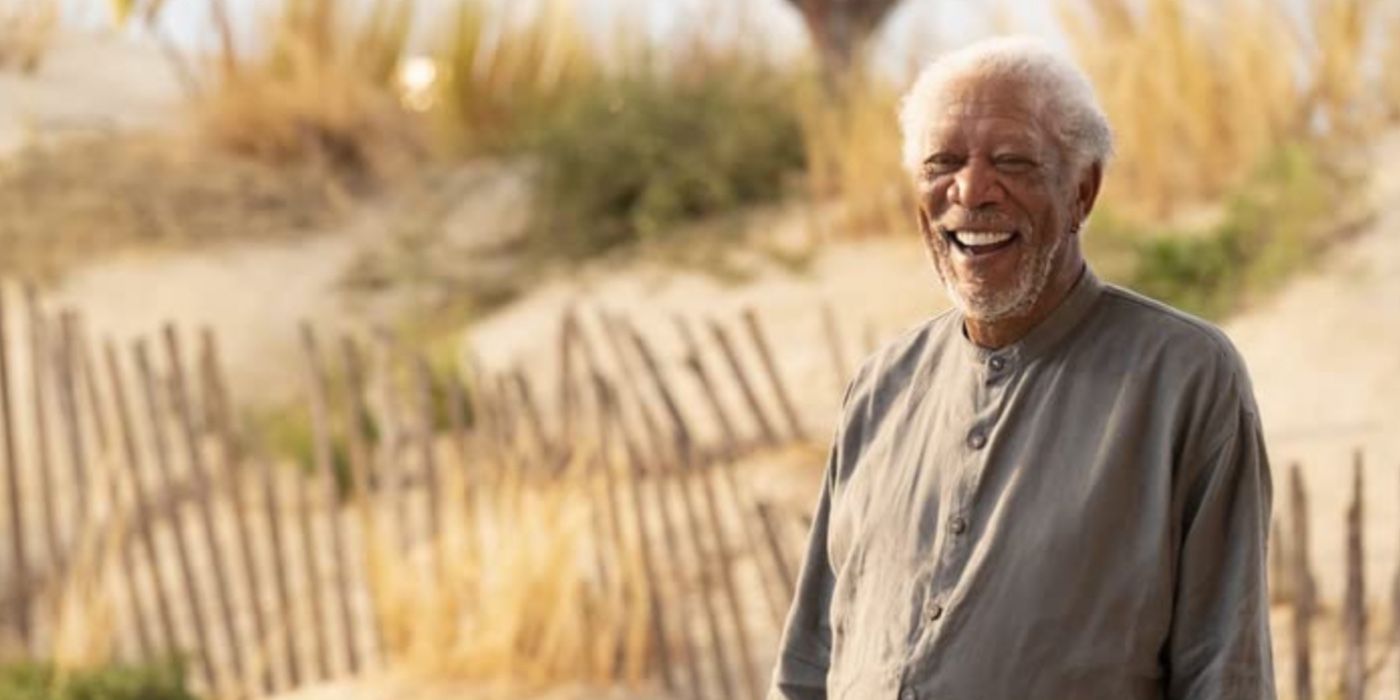Solos, an Amazon Prime Original anthology series, follows several seemingly unconnected characters, but their stories converge in Solos' ending episode. Each episode of Solos season 1 is a self-contained story, usually featuring only one actor in a single setting, where a character is relating or living a pivotal moment in their life with a science fiction twist.
The episodes of Solos season 1 jump from one character to the next, following characters like Leah (Anne Hathaway) in her attempt to contact the future and Tom (Anthony Mackie) as he uses a controversial product to care for his family after his death. Some stories have more explicit connections - like Tom and Peg (Helen Mirren), who are quickly revealed to be father and daughter - but most characters’ journeys are untethered from the rest until the end.
Solos season 1's episodes occur at vastly different points on the timeline, with Solos' cast of characters scattered far into humanity’s future. Likewise, the stories take place across time and space, in settings like a basement laboratory, a spaceship, a memory storage facility, and a specialized quarantine house. Solos' ending only reveals how these far-flung stories could be connected as it arrives at the story of Stuart. Here's how the ending of Solos season 1 brings everything together as the characters connect, and what exactly Solos' meaning is supposed to be.
What Happens In Solos Season 1's Ending
In the final episode of Solos season 1, Otto (Dan Stevens) arrives on a beach where a dementia patient named Stuart is sitting in contemplation. Under the guise of being a healthcare worker, Otto proceeds to offer a stem cell treatment to Stuart (The Shawshank Redemption's Morgan Freeman) that begins to lessen his Alzheimer's-like symptoms and restore some of his memory. As Stuart's memories return and he and Otto converse, it becomes clear that all of Solos' characters connect because each story from Solos season 1 is actually a memory that Stuart stole. As Otto then reveals, Stuart’s memory loss is a side effect of his memory addiction. Over the course of his life, Stuart has been systematically stealing other people's memories to satisfy his own desires, which, in a karma-rich twist, has left him with his own memory loss symptoms.
Otto tells Stuart that he has come searching for memories of his mother which Stuart took from him with his Inception-like thought stealing. The two converse, with Stuart sharing memories of Otto's mother with him, which makes for an emotional interaction. Before Otto leaves, Stuart asks him to leave him with one memory, and the two embrace. Ultimately, then, while Solos season 1 remains an anthology of self-contained stories, Stuart's episode at the end of Solos explains the relevance of the six other stories that came before his, and how all the characters connect.
The Stories In Solos Are Memories That Stuart Stole
As Stuart recovers his memories thanks to Otto's treatment, the recollections are not his own. He remembers Sasha swimming in her best friend’s pool, Peg seeing her lost love at the market, Leah watching 13 Going On 30. These are all memories he stole from other people. Stuart started his career as a memory thief by hacking company servers, like the memory storage facility where Jenny’s memory of the worst day of her life was uploaded, but then he started to take the memories of people he encountered in real life.
Stuart uploaded so many memories that they damaged his brain, giving him similar symptoms to Alzheimer’s disease. He had been collecting these memories for decades, which explains why the stories in Solos season 1 happened in such disparate times and places. Between hacking memories from servers and many years of memory theft, he could manage to collect Tom’s memory and then the memory of Tom’s daughter Peg almost seventy years later.
Solos' Memories Are Stuart’s Escape From Loss
Stuart began stealing memories after his son died of a widespread virus. While many stories (like Stephen King's The Stand) incorporate a pandemic into the plot, the virus alluded to in Solos clearly mirrors the real COVID-19 pandemic, though both the virus and the unbreakable lockdown procedures Sasha recalls seem to be more severe. After losing his son, Stuart wished he could escape from his loss in some way, and the memories were his way out.
He wished he could leave on a spaceship, stay locked in his home, travel to the future, or be punished forever. These desires reflect the specific memories chosen in Solos season 1. Peg escaped her regret for the time she had wasted in her life by leaving on a spaceship. Sasha stayed locked in her quarantine home long after it was safe to return to the world. Leah attempted Tenet-style time travel to change the future and avoid the pain of slowly losing her mother. Jenny was punished for her actions by reliving horrible memories.
Tom and Nera’s stories, though, are a different kind of escape, a manifestation of Stuart’s wish that he had been a better father. Both stories follow people who valued their children while they still could. Tom wanted his children to have a father after he was gone, so he ordered a Remember Me bor to take his place. Nera decided to love and accept her child as he rapidly aged into an adult instead of being scared of the phenomenon. Stuart, however, ignored his son while he was still alive, and he never got to see his child grow up, both regrets that Tom and Nera’s memories fulfilled.
COVID-19’s Importance in Solos
Creator David Weil wrote the show while quarantined during the coronavirus pandemic, so Solos' meaning is a reflection of what he and many others were feeling during that time. He wanted to explore stories that were too difficult to share, which is why each character’s important story takes place while they are alone and looking back on their lives. Weil called Solos' meaning a time capsule of living during the pandemic through the heightened loneliness, fear, and hope for the future. Each episode explores a different form of social isolation as the characters ultimately must confront who they are and what they are doing with their lives on their own.
The Real Meaning of Solos’ Ending
Solos' meaning is about human connection, even though the characters must go through their respective stories alone, much like the storylines in This Is Us. In their most private moments where the characters reflect upon their lives, their focus is always on their connection to other people. Each connected character’s story is motivated by their love for someone else: Leah and Otto’s mothers, Tom’s family, Peg’s high school crush, Sasha’s best friend, Jenny’s babysitting charge, Nera’s baby, and Stuart’s lost son. Even by Solos' ending, when most of these characters would be long gone, they live on in their connection to Stuart’s stolen memories. Solos season 1 is an exploration of the human connections that define one’s life.
Solos' ending also encourages the viewer to reflect upon their own lives in the same way and go on a similar journey of self-discovery after so many lives were thrown into chaos during the pandemic (as was the streaming industry). Weil explains the meaning and aim of his work on Solos thus:
“Ultimately, these stories are both exhortations and cautionary tales to what our lives were like before the pandemic and also what they can be afterward... I wanted this to encourage an introspection and reflection: Is there a loved one you haven’t spoken to in some time, and maybe you want to reconnect after watching this? Or is there a dream you’ve always had that, after watching, you might be more energized and to pursue that passion?”
As Weil elegantly implies, stories are much more than a means of entertainment, as they can actually act as catalysts for personal change. Not only do the connected characters and stories of Solos illustrate this effect on Stuart, but they can similarly enlighten audiences as well. Solos season 1's ending thus neatly ties together a thought-proving series that offers a poignant and heartfelt look at who people are when they are alone.

